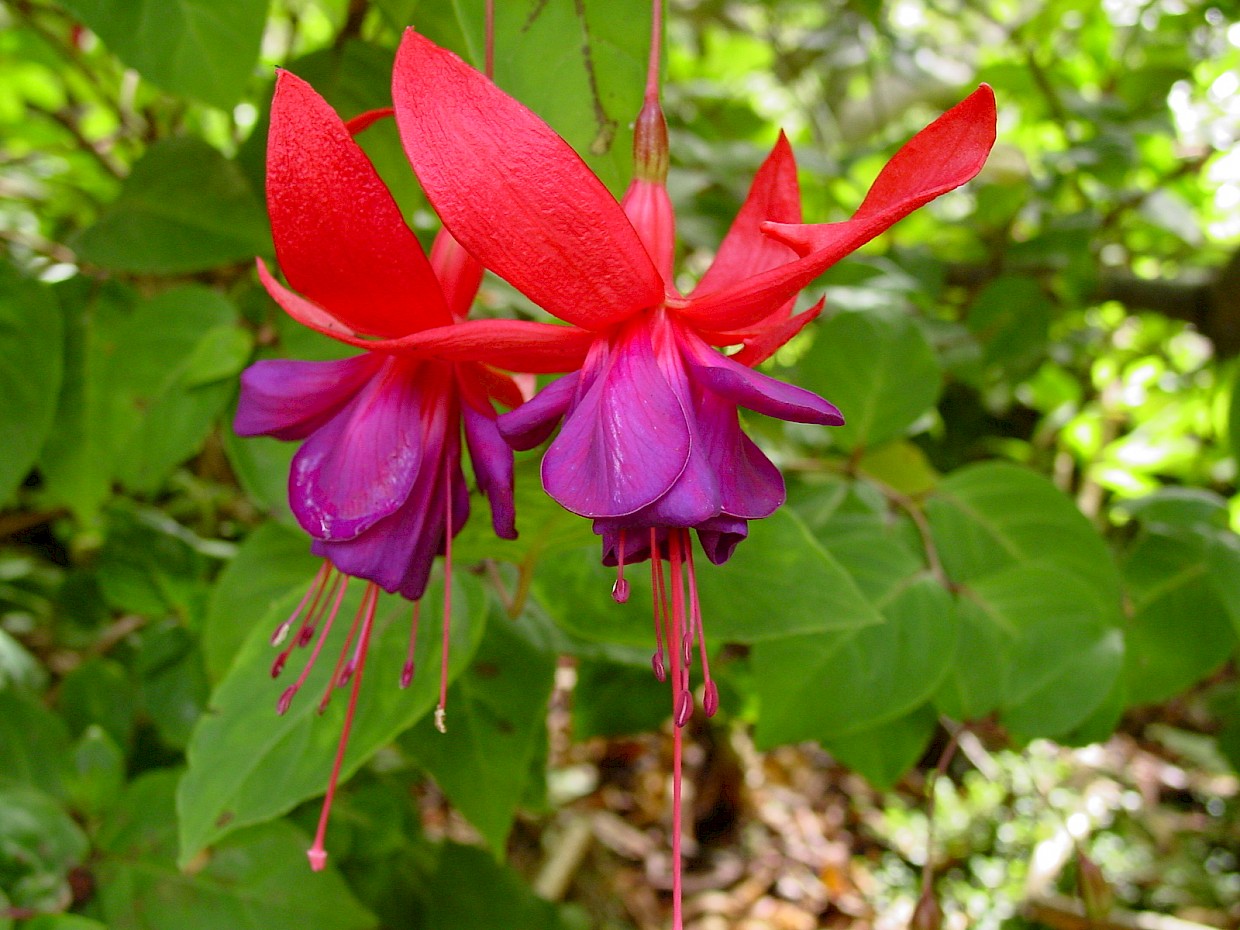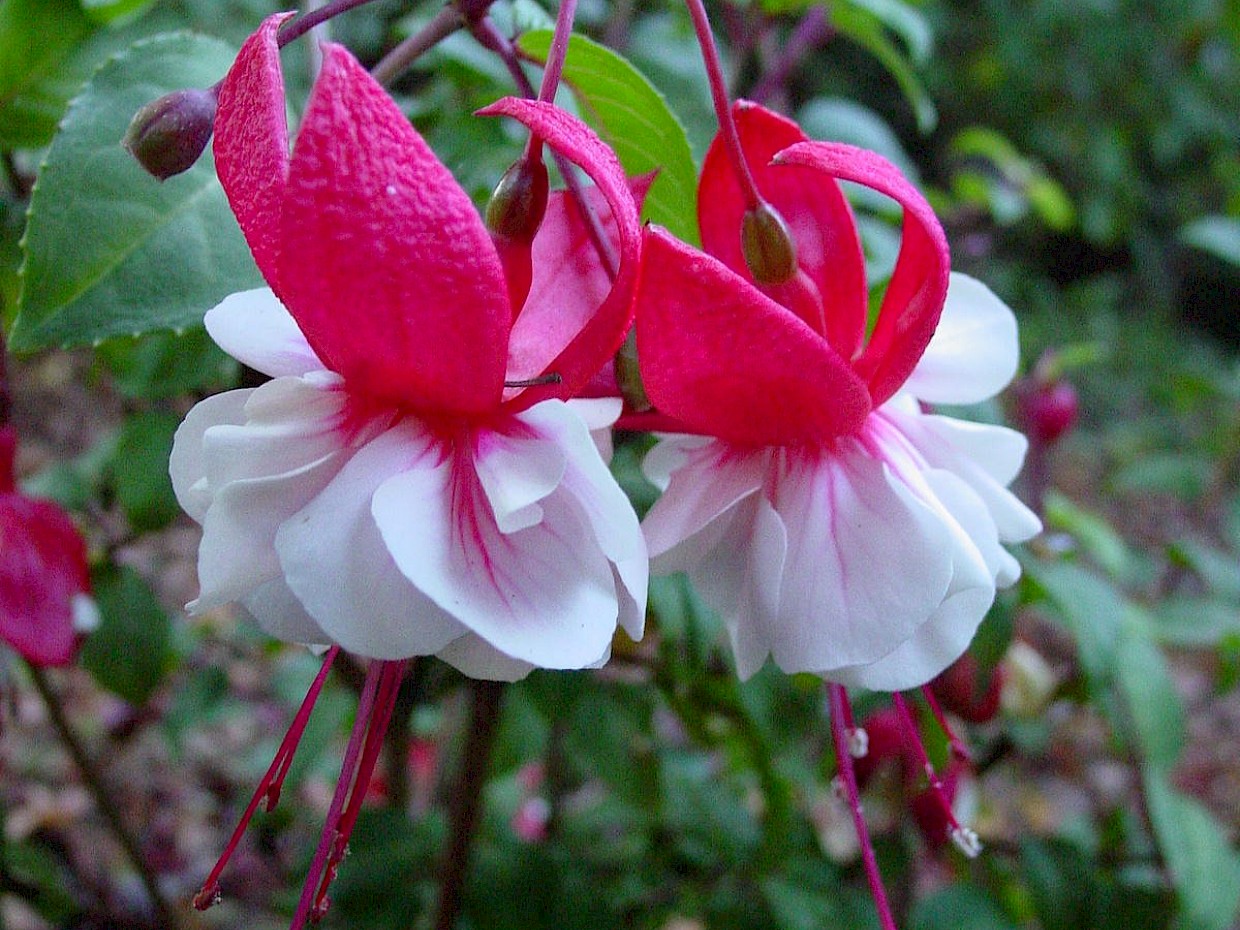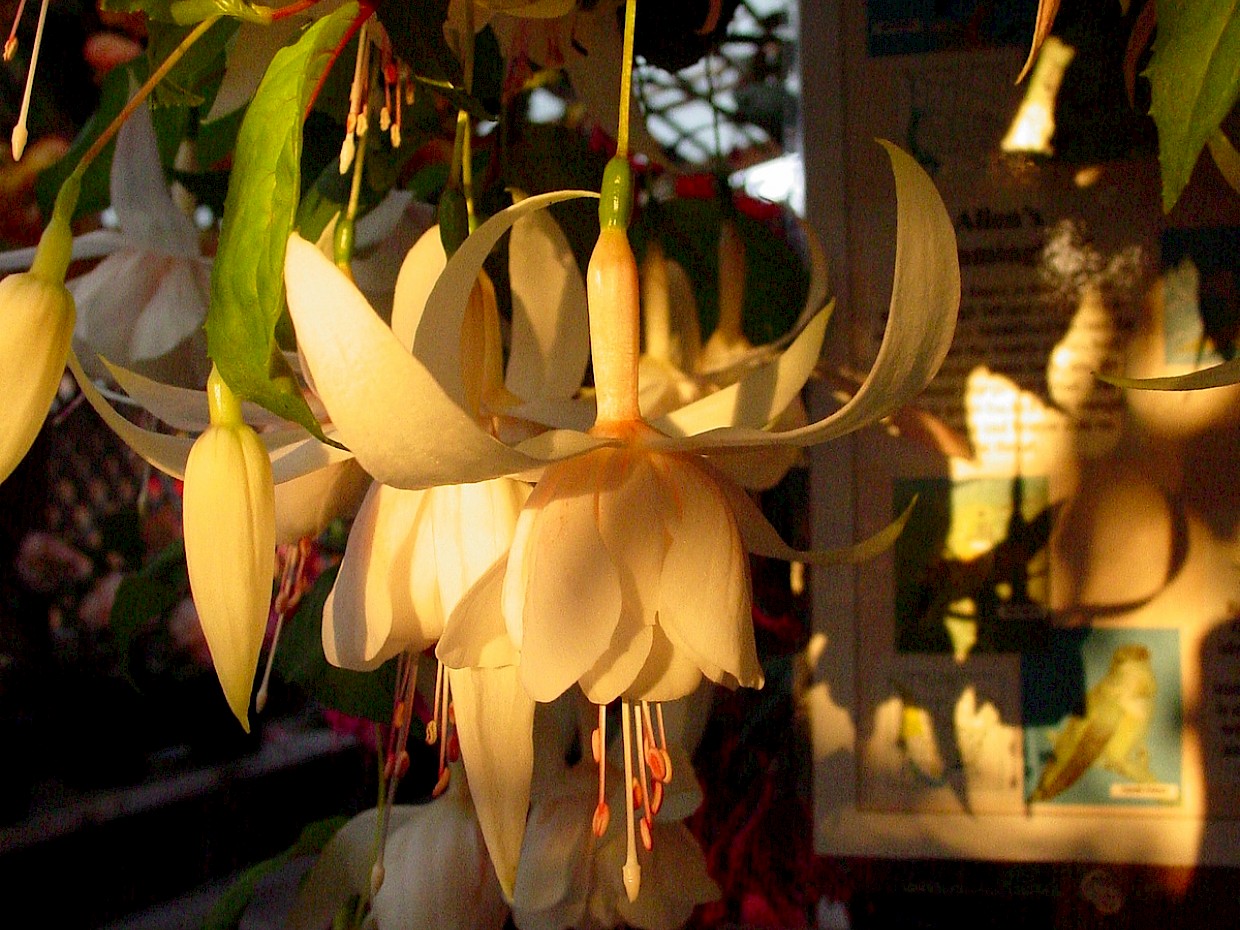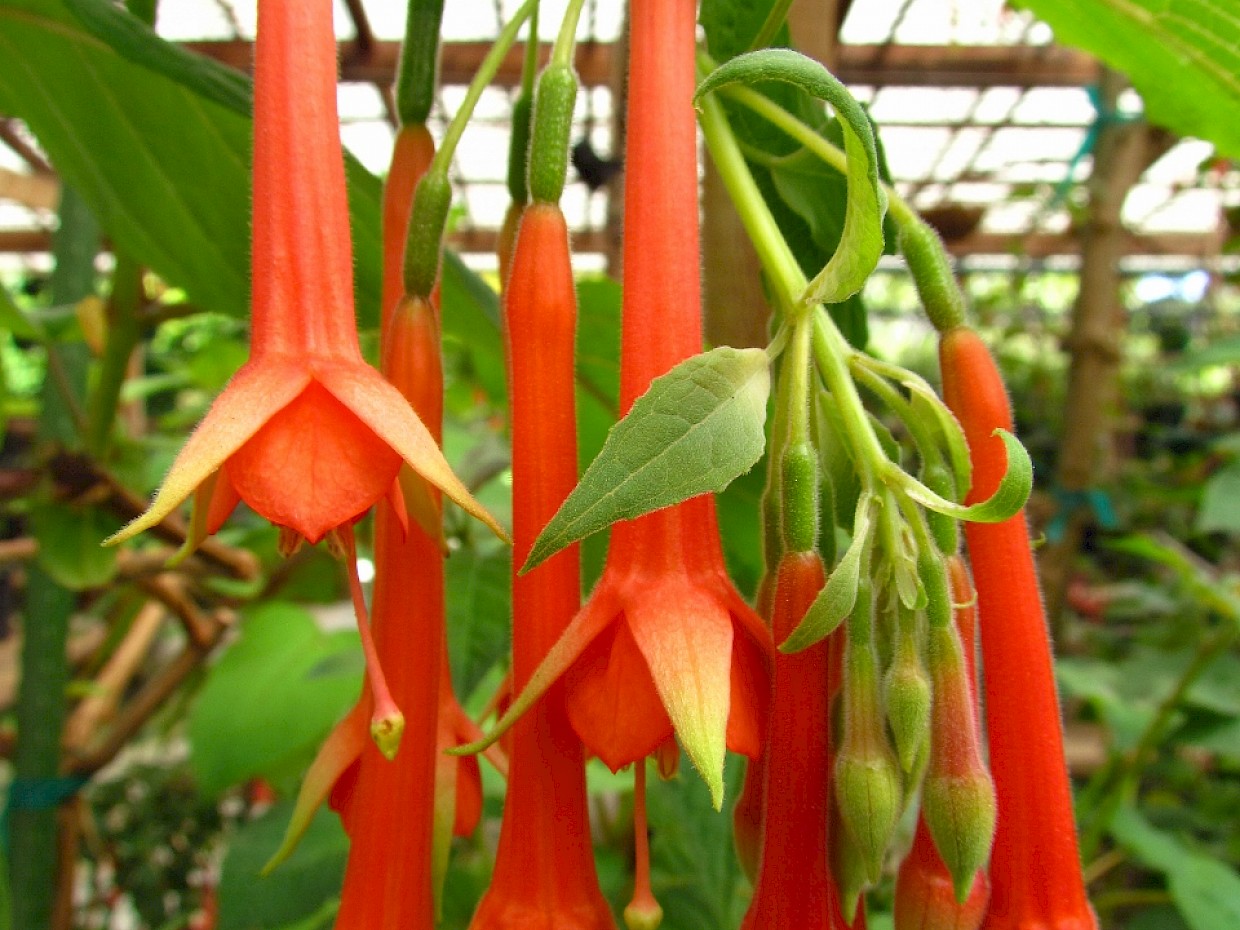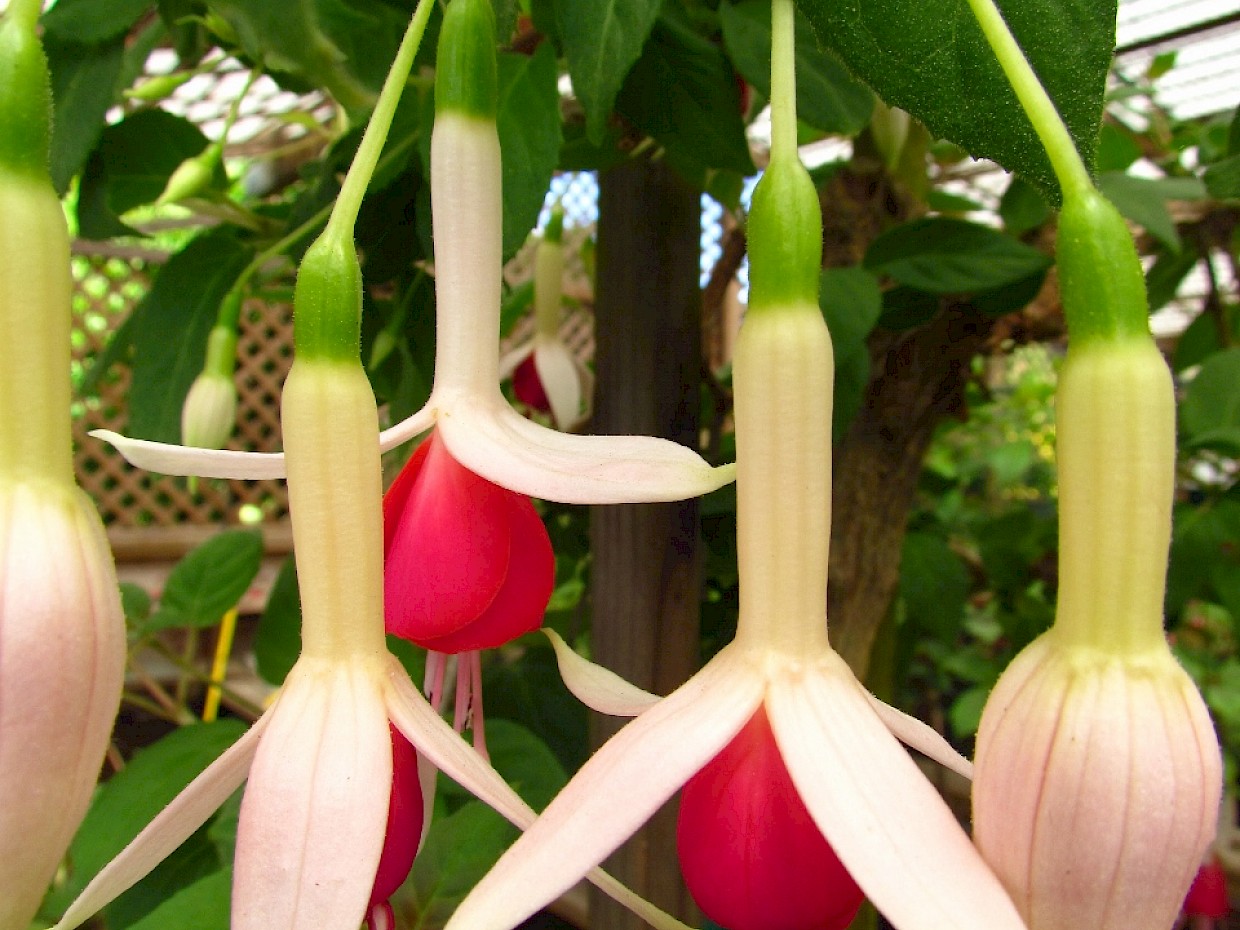Fuchsia Collection
Prime Attractor for Hummingbirds
The genus Fuchsia consists of around 100 species and thousands of hybrids and cultivars that are deciduous and evergreen. The species grown at Mendocino Coast Botanical Gardens are mainly from Central and South American cloud forests; the north coast climate is ideal for growing these beautiful, long-trumpeted flowers that are hummingbird attractors. The Gardens' Fuchsias are especially notable for being resistant to the nefarious fuchsia mite; for this reason, our Nursery propagates and sells this lovely plant for home gardens.
At MCBG, fuchsias are planted in the Woodland Garden and may be found blooming year-round. There is a lovely display of Fuchsia standards in the Mae E. Lauer Display House, with bloom mainly during summer. These are tender species and need protection from the elements. Blooms vary tremendously in size, shape and color. Plant sepals often differ from the petals, and often a third color in the stigma, offering lively, multi-colored combinations to please the eye. Coastal woodland varieties offer a dark pink and purple combination, while the hanging plants in our display house offer everything from the palest green and orange, to tints of pink and peach, and pale lavendar to fiery true reds. This is a mecca for hummingbirds, and visitors who spend more than a f ew minutes in the display house are likely to be buzzed by hummingbirds in competition for the rich nectar of the Fuchsias.
Fuchsias may be grown as trees, standards or espaliers, as shrubs, in pots and hanging baskets, or similar to epiphytes in the crevices of rocks or boulders in moss forests where there is high rainfall. Most Fuchsias bloom from late spring to first frost with some blooming almost year-round. Fuchsias grow best in cool climates with high air- and soil-moisture content. They prefer moist roots though not saturated or soggy. Fuchsias prefer full sun in cool moist climates rather than full shade. In more warm, windy, or dry climates Fuchsias need protection by planting in dapples shade (or a summer cover of shade cloth) with adequate water and mulch to protect roots from drying out. Overhead watering is beneficial to Fuchsias in dry climates, which also discourages pests and keeps leaves clean.
Next: Growing and caring for Dahlias »
« Previous: Creating an Inland Edible Landscape

